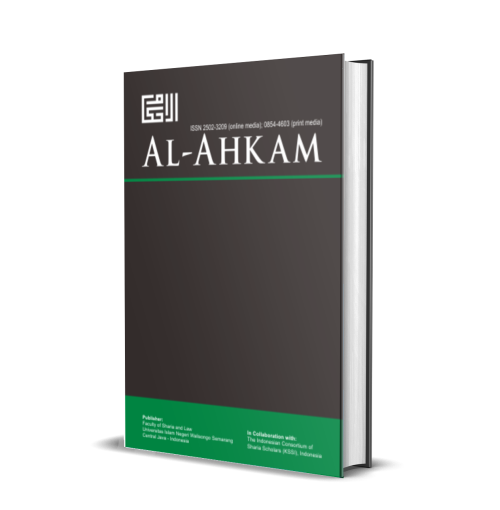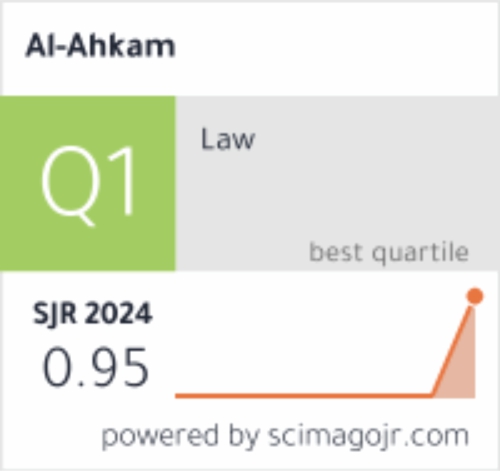REKONSTRUKSI MAKNA MURTAD DAN IMPLIKASI HUKUMNYA
DOI:
https://doi.org/10.21580/ahkam.2012.22.2.10Abstract
Riddah interpreted by fuqahā’ as those who leave Islam. The punishment was killed based on hadith “man baddala dīnahu faqtulūh.” That understanding is different from the description of the Qur'an in the related verses that actually gives punishment neither physical, but non-physical. Those verses are: al-Ḥajj: 11, al-Mā’idah: 54, al-Naḥl: 106, al-Nisā’: 137, Āli ‘Imrān: 86, and al-Baqarah: 217. Study of the verses of the Qur’an shows that none of the text with ṣāriḥ-lafẓiyyah approach that lead to aggressive and emotional attitude to the suspect of riddah. On the other hand the Qur’an asserted that the type of the punishment is eschatological and negates physical punishments. This qualitative research will intends to make reconstruction of riddah meaning and its legal implications. With a historical approach, juridical, philosophical, ideological and comparative of the riddah meaning contained in the Koran, hadīth, and socio-historical perspective, then the reconstruction of the meaning of riddah should be understood to be more humane, comprehensive, and in accordance with maqāsid sharī'ah.
***
Riddah dimaknai oleh ulama fikih sebagai orang yang keluar dari Islam. Hukumannnya adalah dibunuh berdasarkan hadis “man baddala dīnahu faqtulūh.” Pemahaman ter¬sebut berbeda dengan gambaran al-Qur’an dalam ayat-ayat terkait yang justru memberikan hukuman yang tidak satu pun bersifat fisik, melainkan non fisik. Ayat-ayat al-Qur’an tersebut adalah: al-Ḥajj: 11, al-Mā’idah: 54, al-Naḥl: 106, al-Nisā’: 137, Āli ‘Imrān: 86, dan al-Baqarah: 217. Telaah atas ayat-ayat al-Qur’an tersebut menunjukkan bahwa tidak satu pun teks secara ṣāriḥ-lafẓiyyah yang mengarah kepada sikap agresif dan emosional terhadap pelaku riddah. Sebaliknya, al-Qur’an menegaskan sanksinya ber¬sifat eskatalogis; dan menegasikan sanksi fisik. Penelitian kualitatif ini menawarkan upaya rekonstruksi makna riddah dan implikasi hukumnya. Dengan pendekatan historis, yuridis filosofis, ideologis dan komparatif terhadap makna yang terdapat dalam al-Qur’an, hadis, dan sosio-historis yang terkait dengan riddah, rekonstruksi terhadap makna riddah semestinya menjadi lebih humanis, komprehensif dan sesuai maqasid syari’ahnya.
***
Keywords: riddah, jināyah, implikasi hukum, sanksi hukum
Downloads
Downloads
Published
How to Cite
Issue
Section
License
By submitting an article to the journal, the author(s) agree to transfer the published article's copyright to the journal, which will act as the publisher. This means the journal will have the right to publish the article in various forms, including reprints. The journal will maintain the publishing rights to the published articles.
In line with the license, authors and third parties (readers, researchers, and others) are allowed to share and adapt the material. In addition, the material must be given appropriate credit, provided with a link to the license, and indicated if changes were made. If authors remix, transform or build upon the material, authors must distribute their contributions under the same license as the original.




